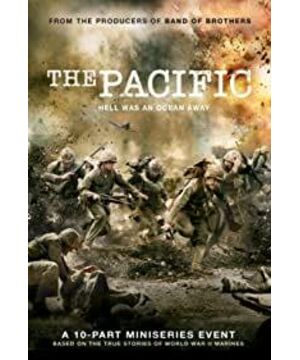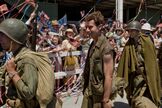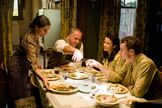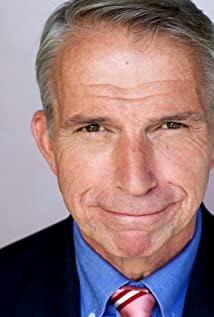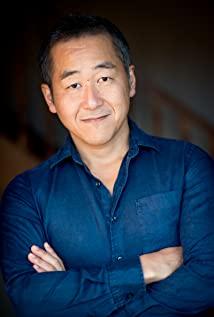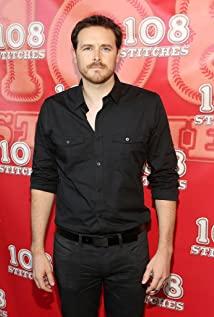The Pacific is not as good as Band of Brothers, which is my first impression when I watch it the first time. There is no way not to compare, just look at the European battlefield with one foot and move to the Pacific Ocean. However, the company of brothers is like a good story with a complete ending. After reading it, you can put it down with a sigh of relief. The Battle of the Pacific is a ghost story that is entangled with people. No way, I went to look for Eugene Sledge's memoir, and the result was even more tangled.
There are a number of reasons why the Battle of the Pacific wasn't a good look. There is a problem with the structure of the script. There are too many clues for Leckie, Basilone and Sledge. The three of them are lower-level soldiers, and the perspectives are not very different, and there is no clear intersection with each other. In contrast, Brother Brothers wrote a company, and the composition was relatively fixed from the first episode. Even if there are many characters, but there are 10 episodes, the audience can calmly get to know them, understand them, and easily have a sense of substitution. The Battle of the Pacific is equivalent to having three core groups like the Brotherhood, each with fewer members than the Brotherhood, but there are four or five supporting roles with a relatively strong relationship between each core role. And Pacific not only wrote about the battlefield but also outside the battlefield, so there are not only comrades in arms, but also the family, friends, wives, and girlfriends of the main characters. These characters do not appear at the same time, and many people have nothing to do with each other. The two episodes have the same number of episodes, but Pacific is also a bit shorter than Brother Brothers, and the time allotted to each group is limited. I read all kinds of introductions, and after the second time, I basically matched all the characters with names and surnames. The relationships between many characters cannot be fully paved and developed, so they appear thin.
For example, Captain Ark Ark on Sledge's line was an officer who had a great influence on Eugene. Eugene himself wrote in memory of Captain Haldane at the beginning of his memoir. Later, the last of the few officers who survived the fight against Peleliu was sent back to the rear with malaria in Okinawa. He also wrote that he felt that the last contact with Captain Haldane had also been cut off. From that day on, K Company was completely in his heart. the same. The Captain's story has been laid out as much as possible, but the scene where he talks to Eugene once or twice still feels a bit out of the ordinary.
Basilone's line is quite satisfactory and quite complete, because there are many bright scenes ahead, but the moment of sacrifice on Iwo Jima is very shocking. What I am most dissatisfied with is Leckie's part. He had a role from before the war to after the war, but except for the fact that he no longer believes in God, I don't see much change, and I don't really understand where the focus of this line is. And I don't like that actor's performance. When I watch him act, I always feel that he knows that the camera is facing him right now. Of course this may be my personal bias.
The most complete one is Eugene Sledge. Since he started fighting, I think the rhythm of the whole drama started to get better. In him, the unique perspective of the Battle of the Pacific that is different from that of the Brotherhood is truly fully displayed. The content of almost 5 episodes is to show the torment of an ordinary young man in the war, continuous shelling, no water to drink, sleeping surrounded by rotten corpses, rolling in the mud and rain, falling into the corpse pit and crawling with maggots, For 30 days, I cannot take a bath or brush my teeth. There are also enemies who somehow do not surrender. Not only can I not save civilians, but civilians have to be killed in many cases. No war is clean and decent, and the Marines' island wars in the Pacific were so bad that they would call Europe a "gentlemen's war". The company of brothers also showed the cruelty of many wars. When it came to the battle of the Pacific Ocean, I felt that it showed the disgust of war, not only killing people, but also not being able to live like a human being.
Eugene's memoirs are highly recommended, so enthusiastic young people who are interested in fighting in the army should prepare a copy first. This is the first memoir of a World War II veteran I have read. It is impossible to judge whether it is good or bad, but he writes candidly and vividly, especially writing a lot of aspects that we usually don’t talk about when watching war movies. For example, Peleliu is a coral reef island, and the ground is very hard, so You can't dig a pit to bury the body, you can't dig a pit when you go to the toilet, you can only defecate anywhere, so the surrounding trenches stink to death, flies and corpses are crawling around, and often flies fly directly from the corpse into their food or coffee. . He also wrote that among all the weapons, he hated cannons the most, because the bombing was so confusing that he could only lie on the ground and tremble. They were bombed in Okinawa for 10 days in a row, and there was not a moment of silence in their ears, and some soldiers just went crazy. There is also the muddy Okinawa. It rained heavily for many days in a row. Walking with weapons in the knee-deep mud, I basically slipped. In the end, many soldiers didn't care if they survived, they just wanted to die quickly.
In contrast, I think the TV series has been softened a lot, and if it is realistically visualized, I guess many viewers will have to spit it out.
In the play, the shaping of the comrade-in-arms relationship between Sledge and Snafu is particularly interesting. The main emotional scenes on the two lines of Leckie and Basilone are love, and one of the main characters on the Sledge line is with Snafu. It's not a traditional fighting friendship, it's not hit-and-run or sympathy, like Winters and Nixon in Band of Brothers. The role of Snafu is very interesting. His character is awkward, his moral judgment is complicated, and he is always hovering on the boundary of human nature. He is not a person who is kind to others. Sledge, as a recruit, looked at him in various ways at first, and then he directly talked back, even scolding, but the two also often save each other, relying on each other to maintain their basic humanity. This is an insight into the relationship between people in an extreme environment, when oneself is not a ghost or a ghost, how will it treat another person. I guess it's not always positive and warm.
The real Snafu may not be such a person, and it feels like the writers have put multiple stories of different soldiers on him. What is the relationship between Eugene and Snafu in reality, I don't know, the screenwriter should have done more and more in-depth research work, and have their own judgment. The attitude towards Snafu in Eugene's own memoirs is intriguing. Snafu is not mentioned many times throughout the book. Of course, Eugene has always tended to not name his comrades in the book. In many cases, he used "a buddy" or "a friend" instead. I guess sometimes it is because he can't remember. Know if the other person is really saying this so as not to offend others, and sometimes it's inappropriate to name them. He once pointed out some people as his good friends, but never said that Snafu was his friend. In fact, they stayed together for a long time, especially during the war. One was a gunner, the other was an assistant gunner, and they were still foxhole buddies, that is, two people sleep in a trench, both in Peleliu and Okinawa. There are several in the book that explicitly state that he was on guard for Snafu sleeping, or when Snafu was on guard while he was sleeping. The book has written stories of various comrades-in-arms. There is a story about Snafu that has little to do with the progress of the war, but it is a very good character story, and it is written very vividly. The overall feeling is that they are familiar with each other, but they don't get along well. From the perspective of family background and personality, they are two people who can't be different. Another book about the Marines once quoted Eugene as describing how the two of them hid in trenches when they were bombarded by Japanese artillery fire, and Snafu, from the Louisiana swamp, would fluently swear a string of swear words "Bitch" Raised to hell" and the like, while Eugene recites the Bible and hymns. It is also a strange fate that the flames of war put such two people who would not normally meet in a pit.
View more about The Pacific reviews


